Sleep specialist on 'Pandemic Dreams' phenomenon
Behavioral sleep medicine specialist, Michael Grandner, explains why you may be experiencing more intense dreams than usual during these unusual times, and ways to get your sleep back on track.
Do you consider the alarm clock your arch nemesis? You’re not alone.
Scores of people report having trouble waking up each morning — which could be due to a wide variety of factors, including medical conditions.
But if you’re feeling pressure to rise a bit earlier than your body is permitting you to do, there are a few tricks and brain trainings that could finally help you become the morning person you want to be.
In an interview with Fox News Digital, Dr. Wendy Troxel, RAND corporation senior behavioral scientist and sleepfoundation.org scientific adviser, shared insights on how to make waking up in the morning a more pleasant experience.
SLEEPING WITH LIGHTS OFF AND CLOSED BLINDS MAY PROTECT YOUR HEALTH: STUDY
"Night people really don't hit their stride until the late evening hours," said Troxel, based in Park City, Utah.
"That's when they're often their most productive, their mood is better, their energy levels are higher — and they really struggle to wake up in the morning."
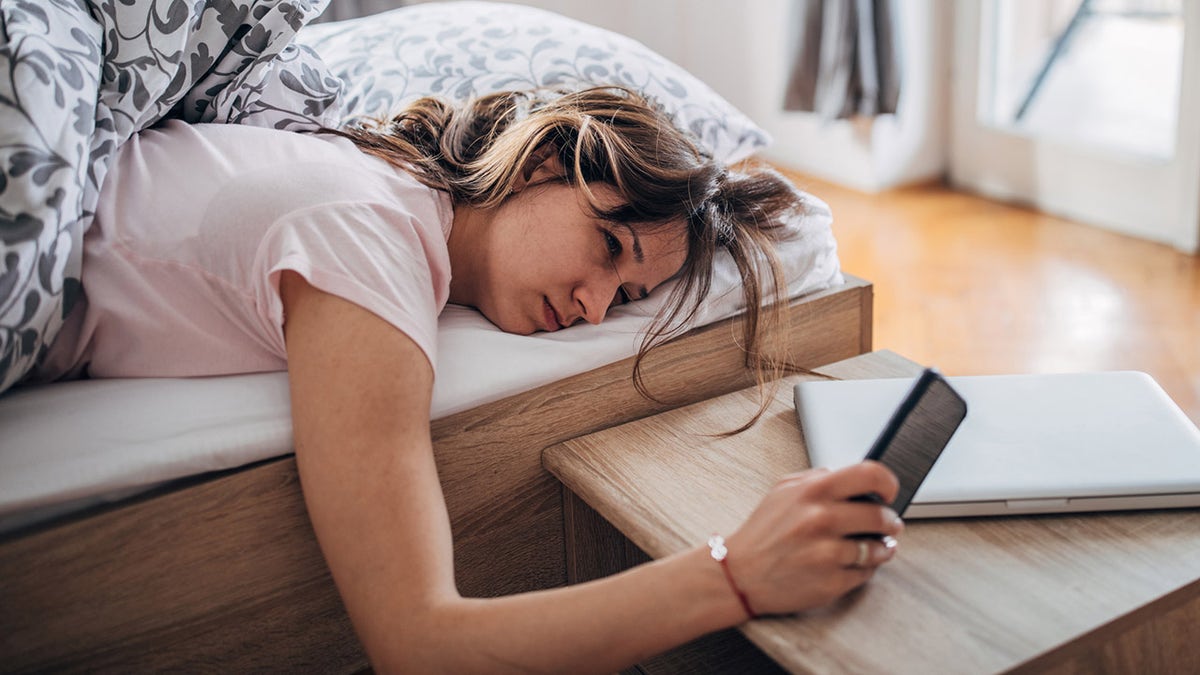
A woman is shown checking her phone as soon as she wakes up. (iStock)
The problem, Troxel pointed out, is that society views morning productivity as a "virtue," which for night owls and teenagers can be "quite dreadful."
The clinical psychologist, also the author of the book "Sharing the Covers," explained that circadian rhythms are 50% genetically determined — so becoming an early riser isn’t just a "matter of willpower."
People who stay up late simply haven't finished resting before the alarm goes off in the morning, said one expert.
Meanwhile, Sleepless in NOLA sleep consultant and medical review expert at sleepfoundation.org Dr. Nilong Vyas, M.D., told Fox News Digital that people who stay up late simply haven't finished resting before the alarm goes off in the morning, which requires a healthy shift.
For everyone looking to give this a try, here are six tips Fox News Digital collected from Troxel and Vyas for creating an earlier wakeup routine — and making it stick.
1. Walk back your sleep schedule bit by bit
Becoming an early riser is not going to happen overnight. People whose circadian rhythms are most functional at night tend to lack the sleep drive to get to bed early enough to get an adequate seven or eight hours of sleep.
Troxel recommended backing up your sleep schedule by 15 minutes every morning and every night. With this slow roll, the body can acclimate to a new internal clock, just as it readjusts to jet lag or daylight savings.
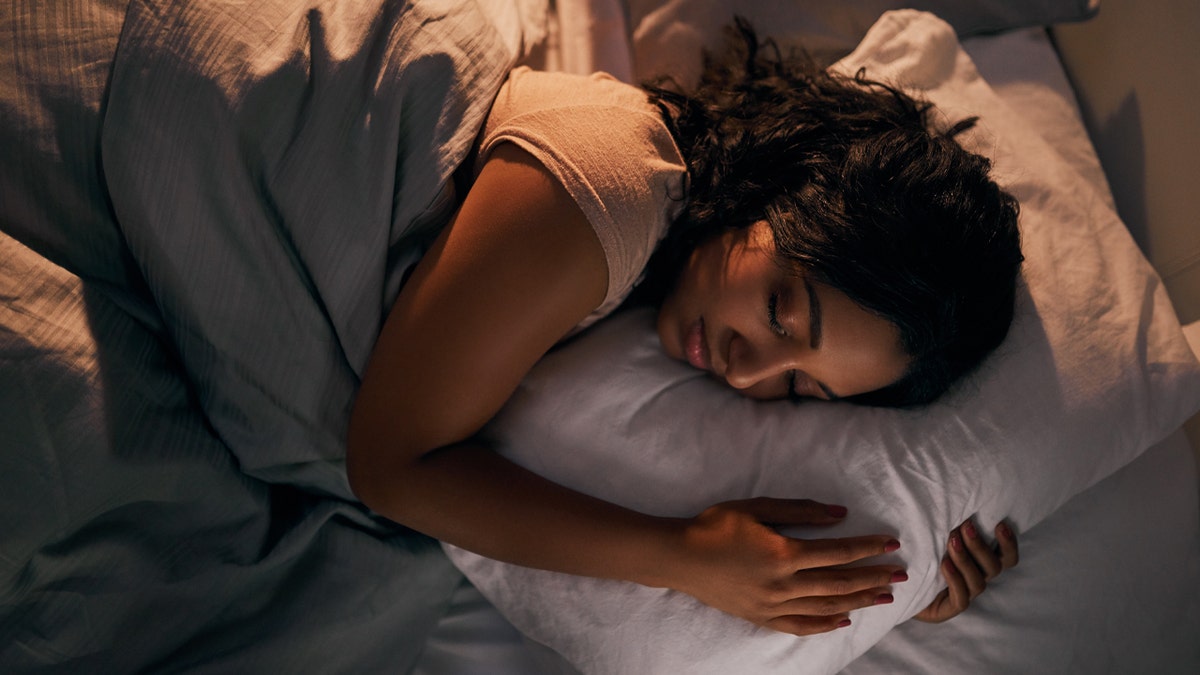
Night owls who force themselves to wake up early will deprive themselves of sleep most of the time. (iStock)
"Don't expect to — overnight — switch your schedule to go to bed at 10 p.m. and wake up at 6 a.m.," she said. "That's just too abrupt and large of a circadian shift for the body to be able to accommodate."
Night owls who force themselves to wake up early will deprive themselves of sleep most of the time.
EXTENDING SLEEP CAN HELP WITH WEIGHT LOSS IN ADULTS: STUDY
People who are sleep-deprived, she said, "set that morning alarm and somehow force themselves out of bed. But they don't allow themselves the time to adjust to an adequate bedtime."
"Your brain doesn't like change. It will try to convince?you why you need to keep sleeping."
Troxel suggested planning ahead and walking back a sleep schedule little by little. She said vacation time might be a good opportunity to try this out.
New Orleans-based Vyas advised that creating the intention of waking up earlier is the first step, though the first few days will be difficult.
"Your brain doesn't like change," she said. "It will try to convince you with a multitude of reasons as to why you need to keep sleeping. However, once you do it for at least 3-5 days, it can start to become a habit."
2. Know that light exposure is your secret weapon
"Light is one of the most powerful cues for setting our internal circadian rhythms," Troxel said. "So it's really important to get lots of light exposure in the morning hours when you're trying to adjust your clock to go early."
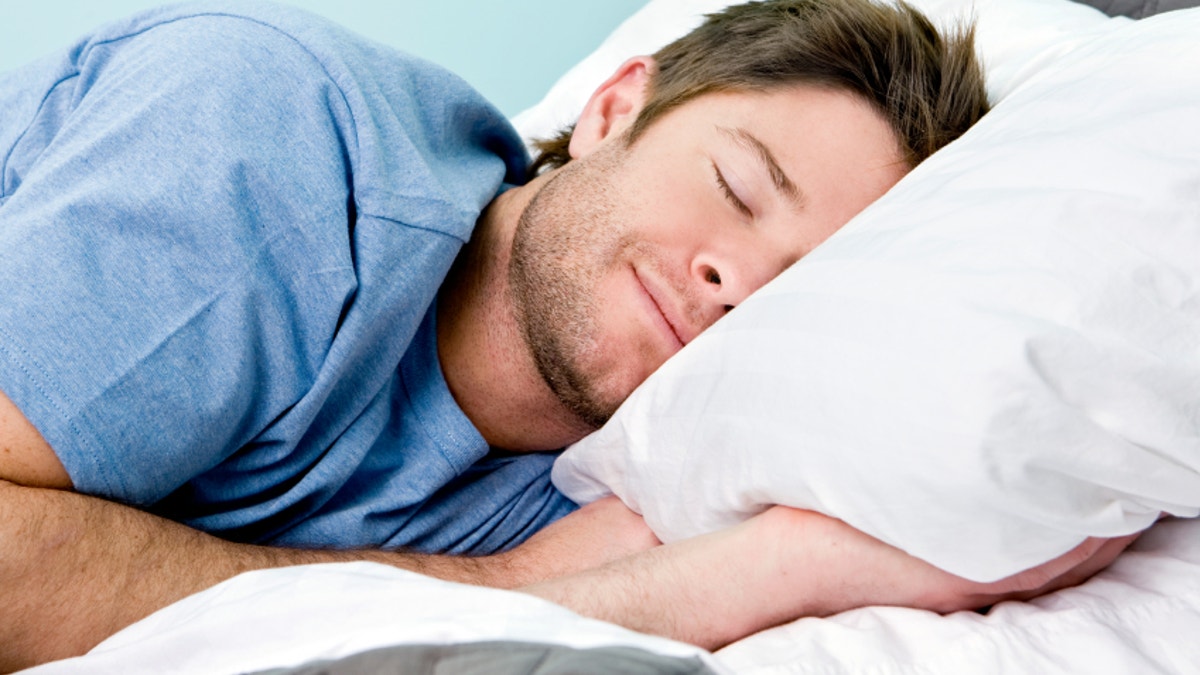
"It's really important to get lots of light exposure in the morning hours." (iStock)
As soon as your alarm clock goes off, the specialist advised flooding your space with lights, including opening the shades, turning lamps and lights on or even using a light box.
By the same token, dimming and turning off the lights in the evening hours before bed will send a "powerful alerting signal" to the body to start to wind down.
The blue light emitted from electronic devices is known to suppress the sleep hormone melatonin.
Exposure to phone light can be just as crucial to curbing your sleep schedule.
In this digital age, people constantly expose themselves to screens. The blue light emitted from electronic devices is known to suppress the sleep hormone melatonin.
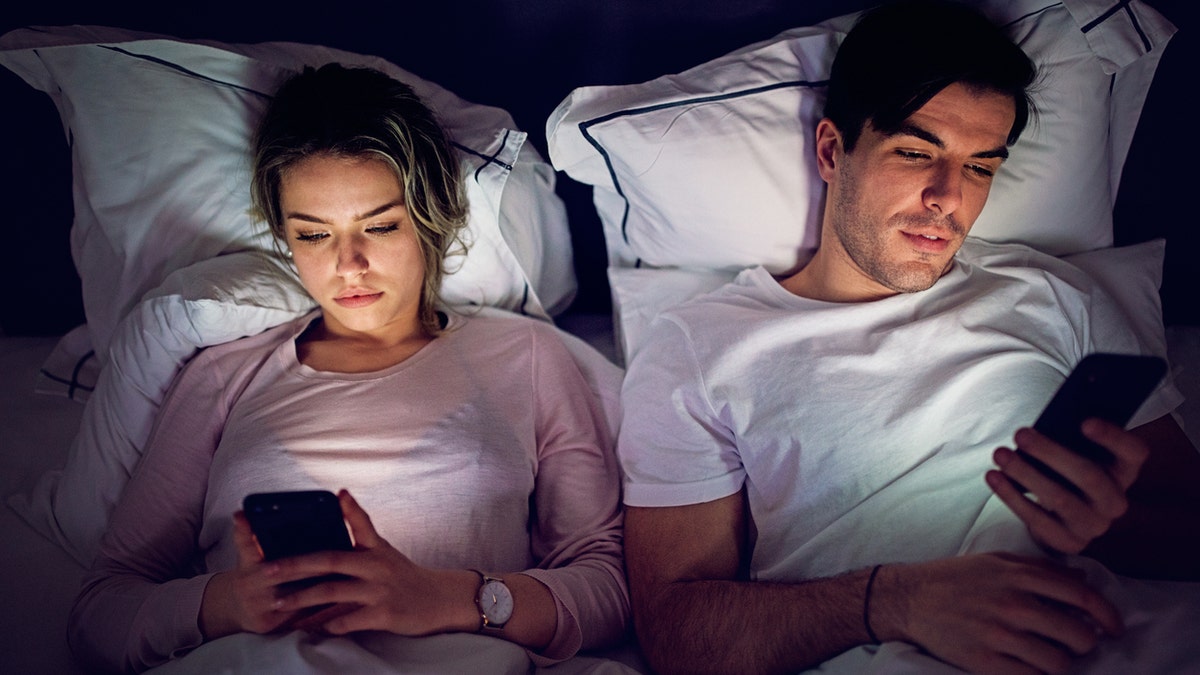
If this scene looks familiar, fix it: Sleep experts advise against viewing phones or screens late at night or right before bedtime. (iStock)
"Melatonin is known as the hormone of darkness," she said.
"So if you hold a phone close to your face in the hours and minutes right up until bedtime, you are actually sending a signal that could counteract the body's natural production and release of melatonin, which otherwise would start signaling it's time for sleep."
Suppressing melatonin and pushing bedtime back later makes it "more difficult" to fall asleep and "more challenging" to wake up.
3. Keep your sleep schedule consistent
Once you begin training your body to fall asleep and wake up at a certain time, it’s important not to switch up the schedule.
Yep! That means no sleeping in on the weekends.
MELATONIN POISONING IN KIDS SHARPLY INCREASED DURING CORONAVIRUS PANDEMIC
Even though this may be "really challenging," Troxel said it’s critical.
"Our circadian rhythms respond best with predictability," she said. "But if you sleep in on the weekend, that's going to reverse any sort of gains that you've made in terms of walking back to your clock."
Consistency is also key when it comes to setting a workout and mealtime schedule, which can also help regulate circadian rhythms.
4. Ditch snooze and just 'rip off the Band-Aid'
Waking up can feel miserable — but the trick is to just do it.
Troxel likened waking up to "ripping off a Band-Aid," explaining how wake-up time should be "rapid and really kind of abrupt."
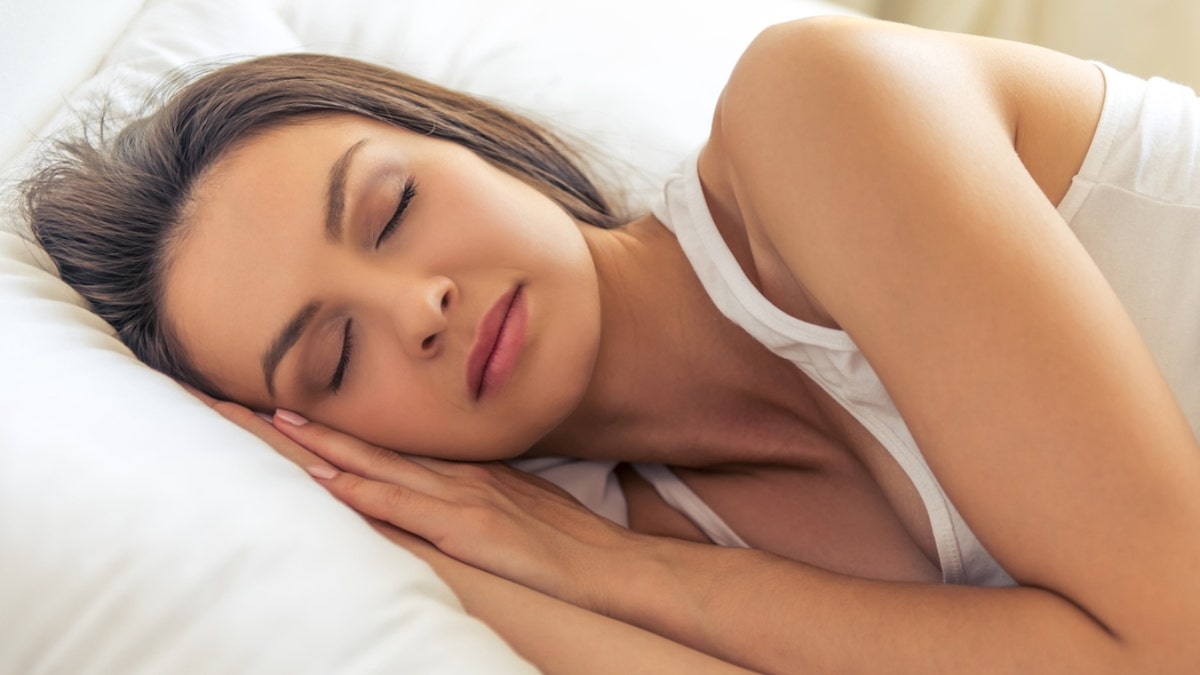
"No benefit comes from prolonging the agony" of getting out of bed in the morning, said one expert — "the sooner you get up and start your day," the better.? (iStock)
"No benefit comes from prolonging the agony, because the sooner you get up and start your day, the sooner that feeling of sleep inertia will wane," she said.
Vyas recommended turning off the option to snooze your clock altogether — and shared the practice of counting down to five before getting up.
"As soon as the alarm goes off, start a countdown in your head for five seconds," she said. "As soon as you get to five, jump out of bed."
"Don't let the thoughts convince you otherwise once you have made up your mind."
5. Consider taking melatonin (consult a doc first)?
Melatonin is a pretty misunderstood supplement when it comes to sleep.
The substance is a chronobiotic, so it’s a time shifter — not a sleep aid.
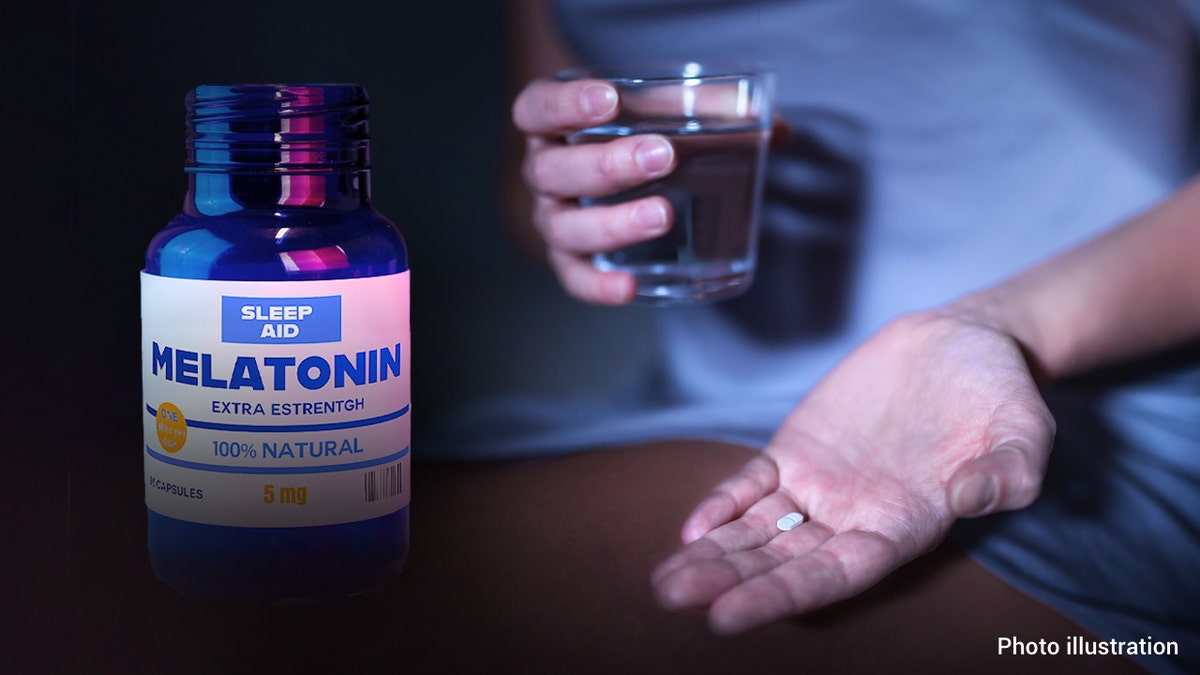
Melatonin is not recommended as a sleep aid by experts but can be a great aid for shifting your internal clock, said Dr. Wendy Troxel. (iStock)
Instead of taking melatonin right before bedtime, try taking it several hours earlier to alert your body that nighttime is coming.
"Melatonin is actually most effective at advancing your clock or making it easier for you to fall asleep earlier," she said. "So, under the advisement of a medical provider, melatonin can be a helpful tool."
CLICK HERE TO SIGN UP FOR OUR LIFESTYLE NEWSLETTER
Troxel, who specializes in sleep medicine, emphasized that melatonin is not recommended as a sleep aid by experts. Yet it can be a great tool for shifting your internal clock, especially in instances such as jet lag.
6. Try the ‘RISE’ technique
A sleep technique developed by UC Berkley’s Dr. Allison Harvey, a colleague of Dr. Troxel, uses the acronym RISE to promote a better waking routine.
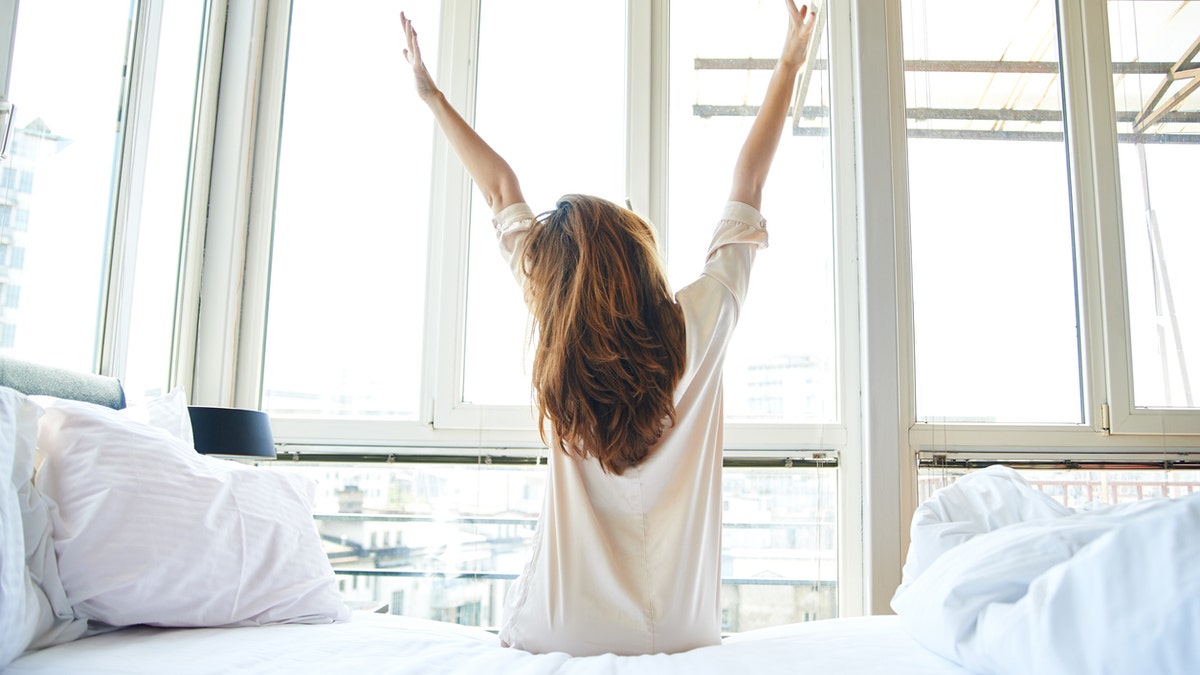
"The snooze button is not your friend," said one of the sleep experts Fox News Digital consulted.?
"R" stands for refraining from hitting the snooze button on the alarm clock.
"The snooze button is not your friend," Troxel said. "All it does is cause an extended period of sleep inertia where you just struggle to shake cobwebs off."
"When the alarm clock goes off, hit it and get out of bed immediately," she added.
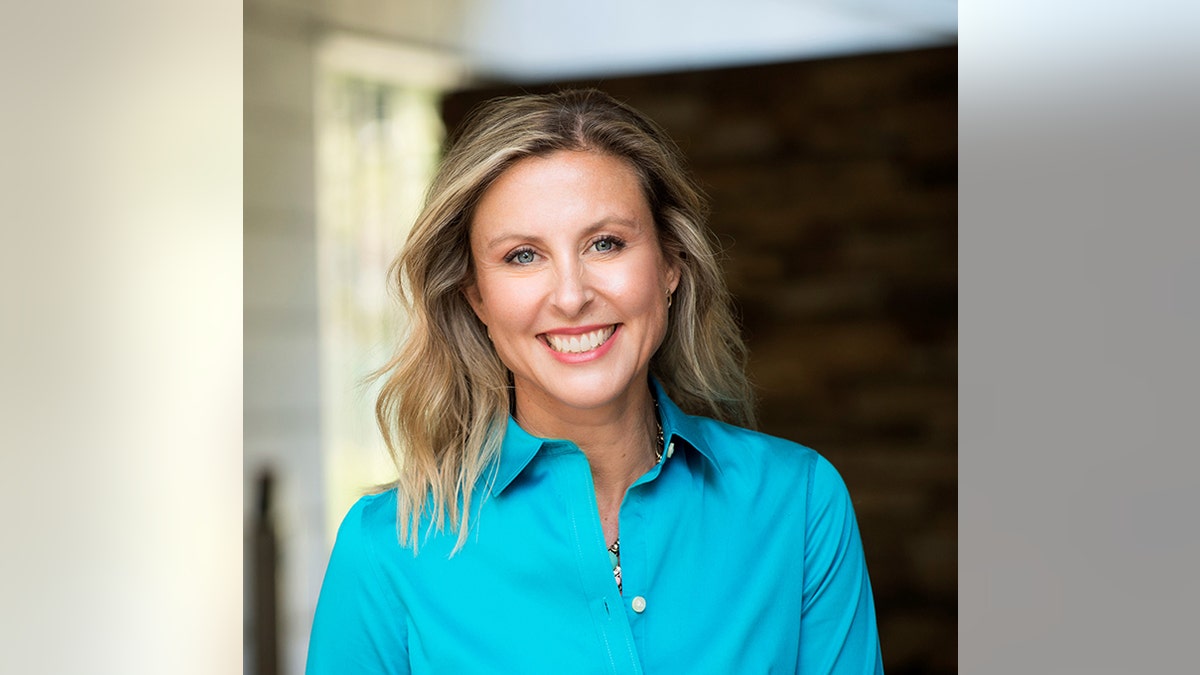
Sleep expert Dr. Wendy Troxel is the author of "Sharing the Covers: Every Couple’s Guide to Better Sleep." (Credit: Diane Baldwin)
"I" stands for increasing physical activity, whether this is engaging in a morning workout or exercising during the day to expel energy and reduce stress.
"S" stands for splashing your face with cold water or taking a cold shower upon waking — something that Troxel said has "a lot" of scientific evidence behind it.
"There's nothing like getting into a cold shower to really boost your alertness."
"Really difficult for most, but it's effective," she said. "There's nothing like getting into a cold shower to really boost your alertness."
"E" stands for exposure to sunlight, which is a major factor in getting up and staying up.
CLICK HERE TO GET THE FOX NEWS APP
For anyone who attempts the RISE technique, Troxel recommended sticking to it for 30 days — for the best chance of creating a new habit.






















